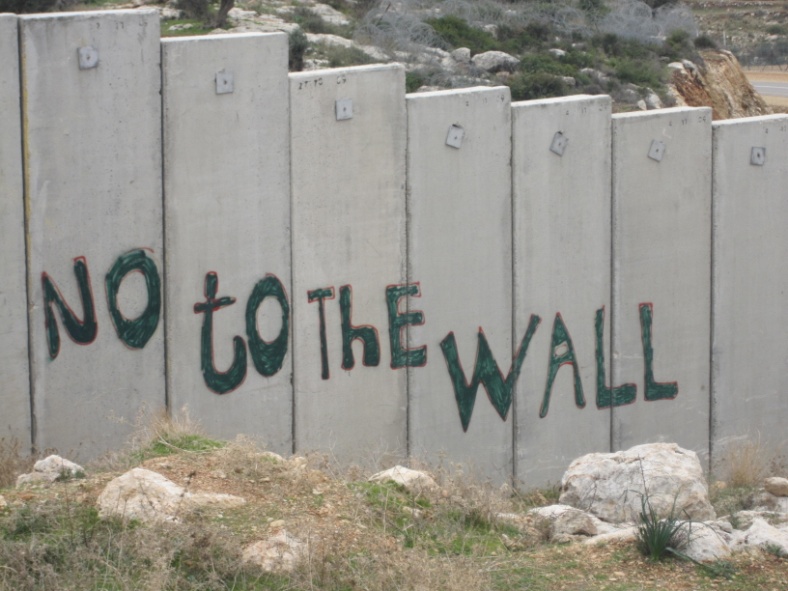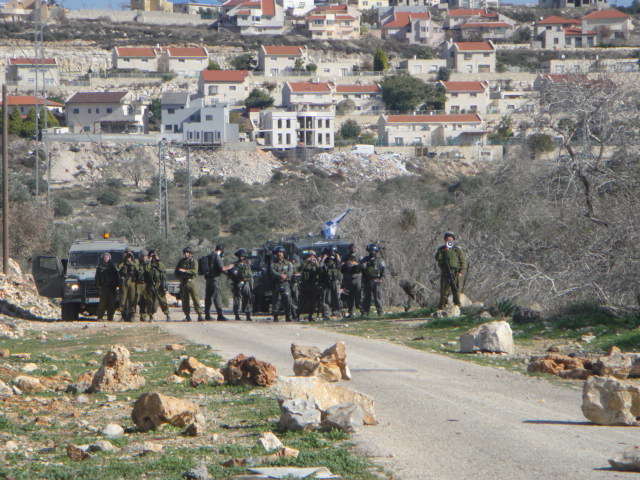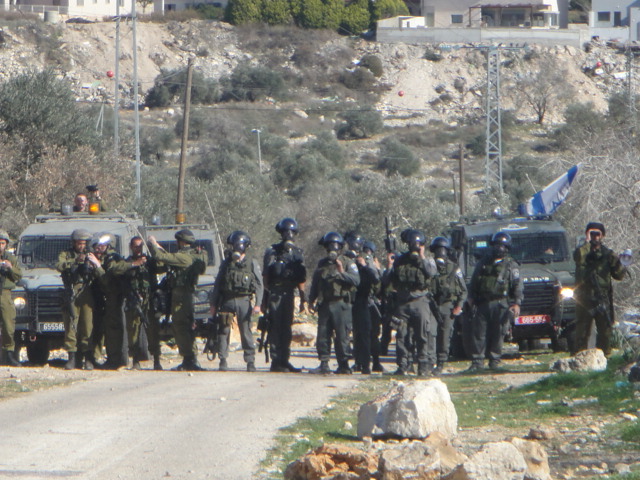Tag: Demonstration
-
Ni’lin honors its heroes and urges military to “Stay Human”
by Barbara and James 30 December 2011 | International Solidarity Movement, West Bank Volleys of tear gas, rubber coated steel bullets and live ammunition is how the Israeli Army met a small demonstration in remembrance of 2 martyrs, in Ni’lin today. Starting after Friday prayers approximately 25 Palestinians and 6 internationals made their way from…
-
Kufr Qaddoum: Israeli military fulfills its promise to make arrests
by Amal 26 December 2011 | International Solidarity Movement, West Bank As reported a few days ago, Israeli Occupation Forces (IOF) have fulfilled the expectation that they would arrest residents from Kufr Qaddoum. Two young men were arrested: one on Christmas Eve and one Christmas day. A “flying” checkpoint, that is, one that is mobile and…
-
Kufr Qaddoum: Demonstrators photograph military violence despite their weapons and cameras
by Amal 23 December 2011 | International Solidarity Movement, West Bank The demand in Kufr Qaddoum for their main road to be reopened continues. Today’s demonstration exceeded the number of participants in the past few protests. Approximately 200 people joined together against this illegal street closure. Many of the supporters came from different parts of…



